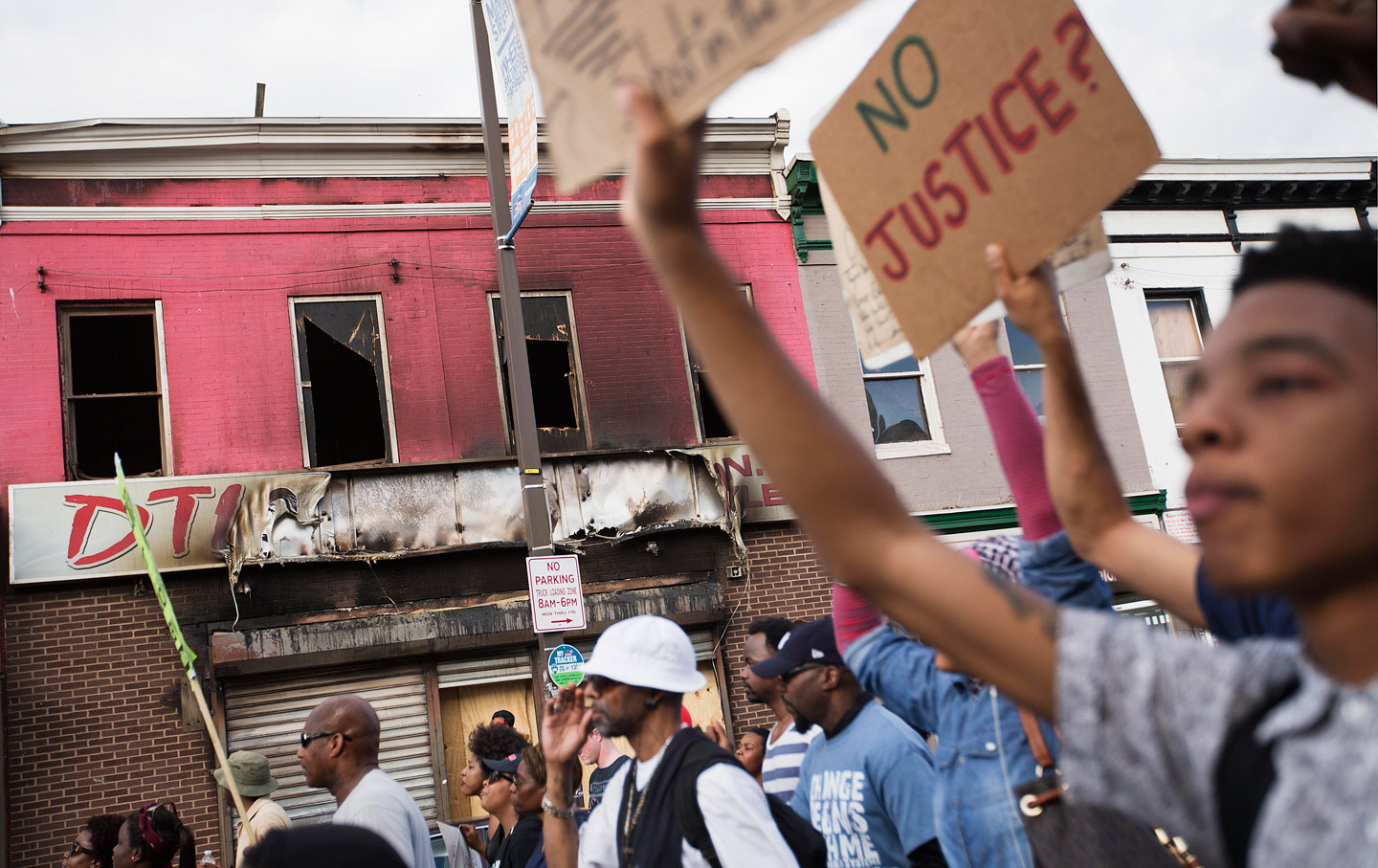
A march on Saturday, May 2, 2015, in Baltimore. (AP Photo/David Goldman)
Allen Bullock became an unwitting star of the Baltimore riots. In a photo splashed across the front page of The Baltimore Sun, the 18-year-old stood on the hood of a cop car, smashing the windshield with an orange cone. It was a striking portrait of the youthful rage that has forced everyone from President Obama to Geraldo Rivera to belatedly notice West Baltimore’s pain.
Bullock’s well-meaning parents urged him to turn himself in to the police. “We wanted Allen to do the right thing,” his mother told The Guardian. That sentiment plunged the family into a trick bag of morality that black people routinely encounter when they brush up against the criminal-justice system. For smashing that window, Bullock is being held on $500,000 bail and faces a sentence of four to eight years in prison. Bail for the six officers charged with taking Freddie Gray’s life topped out at $350,000. We couldn’t ask for a starker example of property being valued higher than black life.
Whether Bullock and his peers had already done “the right thing” by erupting in the streets of Baltimore will remain the subject of debate for some time. What’s clear, though, is that their rioting prompted a remarkable shift in the public discussion over police violence. What had been a narrow debate about cops opened up into something larger—and more honest.
“I don’t want the discussion about criminal justice, smart policing, to be siloed…. Because that is a symptom, not a cause, of what ails us today,” Hillary Clinton offered in a surprisingly direct speech on Baltimore. The president struck a similar note in his own remarks, in which he identified the core challenge as endemic poverty. “If our society really wanted to solve the problem, we could,” he declared. “It’s just, it would require everybody saying this is important.”
So let’s truly name that problem: Bullock is part of what may become black America’s lost generation. He was a toddler when the 2001 recession began. Black neighborhoods around the country never fully recovered from that collapse, and as a consequence, many of Bullock’s peers and fellow rioters have only lived in a world in which black America is in crisis.
Commentators have already parsed Baltimore’s many glaring inequities, from Bullock’s dim educational opportunities to Gray’s lead-paint poisoning. But we’d do well to understand the larger picture nationwide. Take jobs: The overall unemployment rate has inched its way down to where it was before the most recent crash, in 2008. The black jobless rate, however, is still 2.4 points higher than it was at the start of the recession. More to the point, even if we could get job numbers back to their pre-crash level, black unemployment would still be higher than it was in 2001. In Bullock’s short life, the country has twice emerged from recession—and twice left him behind.
Absent a targeted intervention to bring black America into the current recovery, the teens who filled Baltimore’s streets are unlikely to ever know a reality beyond crisis. Here’s one of poverty’s depressing truths: If you grow up a poor child, you are very likely to be a poor adult. And today, four out of 10 black children live in poverty—roughly double the national rate. Among the consequences of this fact is a generation of young people increasingly aware that their country does not, in fact, consider their lives important. They will be told to make their voices heard through the tidy world of electoral politics, and perhaps they will one day. But many will speak in the way Bullock has—by smashing the facade of order with the nearest blunt object they can find.
Kai WrightTwitterKai Wright is editor and host of WNYC’s narrative unit, and a columnist for The Nation.